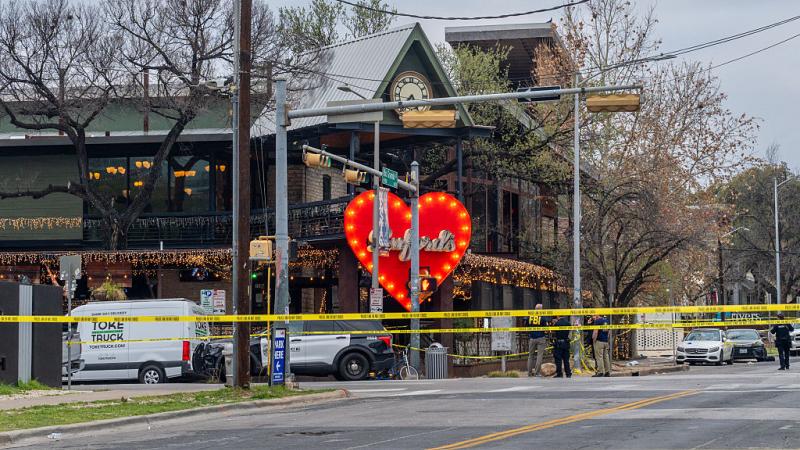The 21 words uttered by FISA court that change the Russia collusion case forever
Judge rules for first time FBI misled, rejecting years of excuse making and suggesting process reforms won't be enough.
For much of the last three years, key law enforcement leaders have insisted they did nothing wrong in pursuing counterintelligence surveillance warrants targeting the Trump campaign starting during the 2016 election. And, they've added, if mistakes were made, they were unintentional process errors downstream from them and not an effort to deceive the judges.
But in a little-noted passage in a recent order, U.S. District Judge James A. Boasberg, the new chief judge of the Foreign Intelligence Surveillance Court, took direct aim at the excuses and blame-shifting of these senior Obama administration FBI and DOJ officials.
In just 21 words, Boasberg provided the first judicial declaration the FBI had misled the court, not just committed process errors. "There is thus little doubt that the government breached its duty of candor to the Court with respect to those applications," Boasberg wrote.
The no-fault mantra has been spread by everyone from President Trump's former deputy attorney general Rod Rosenstein, who insisted the DOJ took its responsibility to submit "admissible evidence, credible witnesses" very seriously, to the ex-FBI Director James Comey, who declared recently it was "nonsense" to suggest the bureau opened a probe without good cause.
Some of these defenses — including a focus on fixing process suggested by current FBI chief Christopher Wray — have persisted even after Justice Department Inspector General Michael Horowitz issued a damning report in December finding the Foreign Intelligence Surveillance Act warrant applications targeting former Trump campaign adviser Carter Page were riddled with mistakes, including 17 examples of misconduct, misinformation or outright lies.
Judge Boasberg drew headlines last week for an order suspending all FBI and DOJ lawyers involved in the Russia collusion case from appearing before his court until it is determined whether they engaged in misconduct.
But of greater long-term significance was his language pinning responsibility for FISA abuses squarely on senior officials, not just lower-level line agents and lawyers who prepared the warrant applications.
"The frequency and seriousness of these errors in a case that, given its sensitive nature, had an unusually high level of review at both DOJ and the Federal Bureau of Investigation have called into question the reliability of the information proffered in other FBI applications," Boasberg wrote.
In another words, he is worried the bad conduct exhibited by the FBI may extend to more cases affecting others' civil liberties.
Finally, Boasberg put Wray on notice — even while praising the current director — that process fixes alone won't suffice.
"The errors the OIG pointed out cannot be solved through procedures alone," he wrote. "DOJ and the FBI, including all personnel involved in the FISA process, must fully understand and embrace the heightened duties of probity and transparency that apply in ex parte proceedings."
Boasberg's ruling was far more than a temporary suspension of FBI personnel's participation in the FISA court. It is the first and only judicial finding in the Russia case that the FBI vastly misled the nation's intelligence court and that blame must be shouldered by federal law enforcement's top leaders, many of whom have spent much of the last three years trying to escape such accountability.
For those who have begged the FISA court for years to more aggressively rebuke the conduct in the Russia case, Boasberg's ruling was a welcome step in the right direction and a first effort to end the excuse-making. But those critics are holding out for more, including prosecutions or disciplinary action.
In the meantime, those who led the FBI and DOJ through that turbulent time — Comey and his deputy Andrew McCabe, as well as former acting Attorney General Sally Yates and Rosenstein — must come to grips with this new reality. A judge has formally concluded that his court was misled by the work product they oversaw and signed.
The Facts Inside Our Reporter's Notebook
Videos
Watch James Comey testify before Senate Intelligence Committee about FISA abuses.
Documents
FISC Court ruling:
DOJ IG Report on Russia FISAs:
Links
- Recent order by FISC Chief Judge James A. Boasberg
- Rod Rosenstein insisted the DOJ took its responsibility to submit "admissible evidence, credible witnesses" very seriously
- Ex-FBI Director James Comey says suggestions bureau opened up bad Russia probe is "nonsense"
- Justice Department Inspector General Michael Horowitz's report in December
















